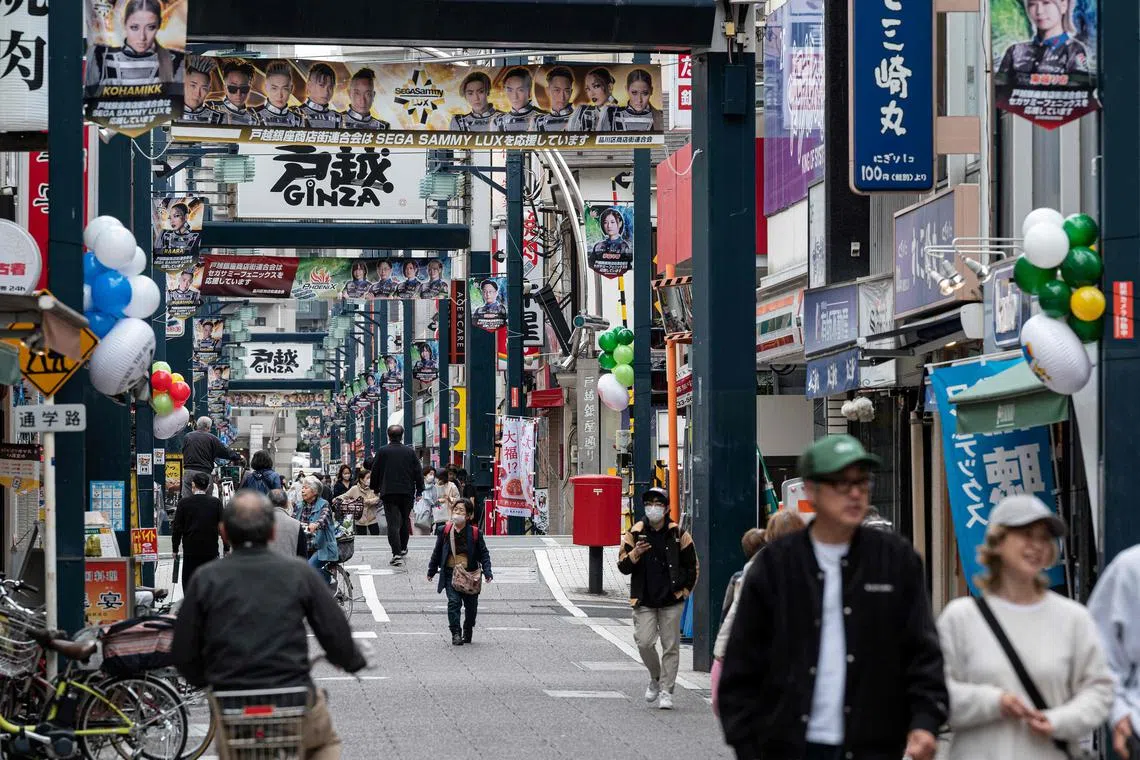Japan economy grows more than expected in Q1 after technical recession
Sign up now: Get ST's newsletters delivered to your inbox

Japan’s economy expanded at a faster pace than expected in the first quarter as a further easing of pandemic regulations boosted consumption.
PHOTO: AFP
TOKYO – Japan’s economy expanded at a faster pace than expected in the first quarter as a further easing of pandemic regulations boosted consumption.
Gross domestic product (GDP) expanded at an annualised pace of 1.6 per cent in the first three months of this year to register the strongest growth in three quarters, after a technical recession at the end of last year following a revision in earlier figures, Japan’s Cabinet Office data showed on Wednesday.
Last quarter’s expansion exceeded analysts’ estimates of 0.8 per cent growth and was also supported by better-than-expected business spending.
The stronger-than-forecast reading bodes well for the nation’s economic recovery and could give Prime Minister Fumio Kishida more leeway to consider an early election.
Mr Kishida is hosting Group of Seven leaders in Hiroshima this week,
An economy growing faster than expected despite a global downturn may also offer some reassurance to the Bank of Japan (BOJ) as freshly installed Governor Kazuo Ueda
Some market players and economists are expecting Mr Ueda to tweak policy before a review he called in April is completed.
The better-than-expected result is likely to keep speculation alive that the BOJ may start normalising its policy after a decade of aggressive monetary easing.
Such speculation has been persistent even as Mr Ueda repeatedly said that the BOJ has yet to project inflation will be anchored above its 2 per cent target and therefore the bank will need to keep up easing.
The world’s third-largest economy faces both headwinds and tailwinds as it aims to gain more momentum towards a robust post-pandemic recovery.
Earlier in May, the government lowered its classification of Covid-19 to be on a par with seasonal flu.
At home, stronger wage growth and additional price relief measures by the government are supporting consumption.
But it remains to be seen if pay cheques can keep up with the pace of inflation that is so far proving stickier than expected.
Downside risks mainly stem from slowdown concerns over the global economy in the wake of higher interest rates to cool inflation.
Weaker overseas demand will likely hurt exports from Japan and discourage companies from capital investment.
Wednesday’s data showed that net trade had dragged more than estimated on last quarter’s growth. BLOOMBERG


